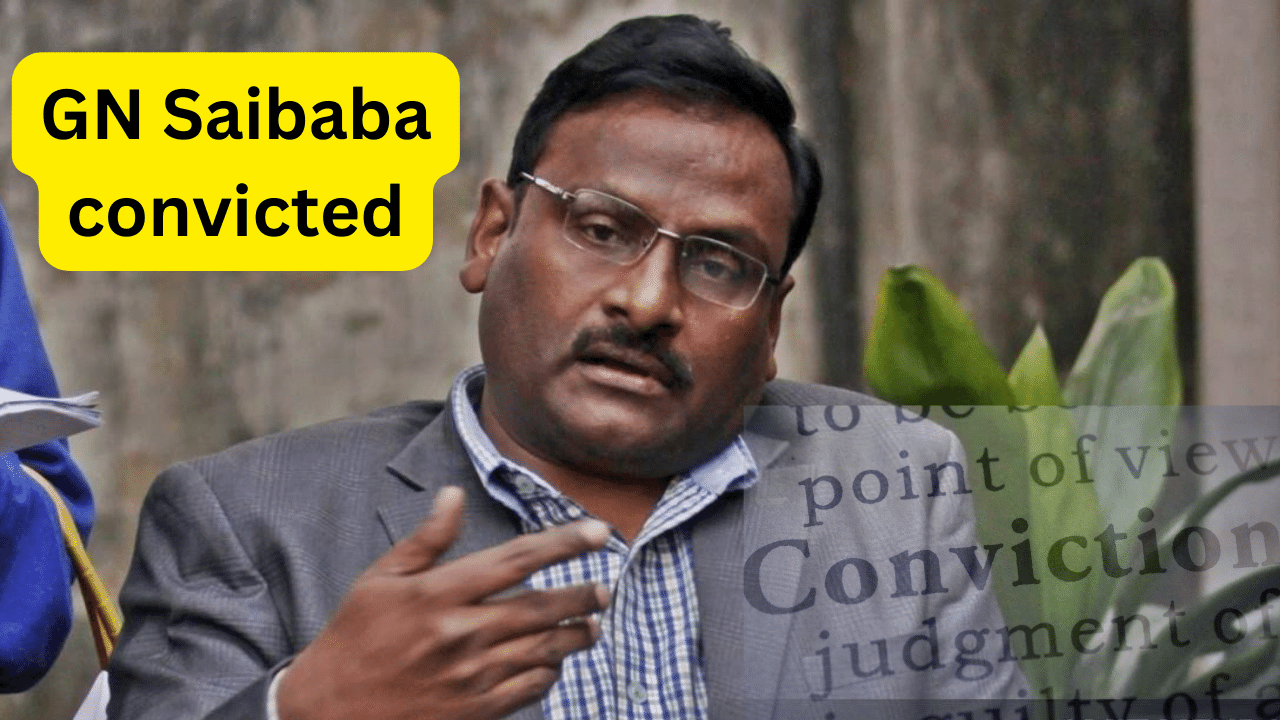On 11th April 2023, the Supreme Court of India set aside the acquittal of Delhi University Professor GN Saibaba in the Maoist Link Case.
The Bombay High Court had granted him acquittal on the grounds that the charges were framed against him without obtaining sanction from the central government. The Supreme Court remanded the matter to the High Court for fresh consideration by a new bench. The Court observed that it will be open for the State to argue all contentions and asked the High Court to dispose of the appeals expeditiously, preferably within four months.
Background of the Case:
In 2014, GN Saibaba was arrested by the Maharashtra Police on charges of being a Maoist sympathizer and for allegedly inciting violence in the Gadchiroli region of Maharashtra. The police claimed that they had found incriminating documents on his laptop and pen drives recovered from him. He was also accused of having links with the banned Communist Party of India (Maoist).
In March 2017, a sessions court in Maharashtra convicted GN Saibaba along with five others under the Unlawful Activities (Prevention) Act (UAPA) and sentenced them to life imprisonment. The court held that GN Saibaba was a member of the banned CPI (Maoist) and had been involved in several illegal activities.
GN Saibaba challenged the conviction and sentencing in the Bombay High Court on the ground that Section 45(1) of the UAPA was not followed and charges were framed without the Centre’s sanction. The High Court, in its judgment dated 14th October 2022, allowed the appeal and granted him acquittal.
The State Government of Maharashtra filed a Special Leave Petition in the Supreme Court challenging the High Court’s decision.On the Maharashtra Government’s argument that failure to grant sanction cannot result in acquittal in light of Section 465 CrPC, the Supreme Court, in its Special sitting, suspended the High Court’s decision the very next day.
Supreme Court’s Observations:
The Supreme Court observed that the High Court had erred in granting acquittal to Saibaba on the grounds that charges were framed against him without obtaining sanction from the central government. The Court held that the provisions of Section 45(1) of the UAPA were not mandatory and that the failure to obtain sanction did not render the trial illegal.
The Court noted that the High Court had failed to consider the evidence against Saibaba and had granted acquittal solely on the basis of the procedural irregularity. The Court held that the High Court had erred in setting aside the conviction and that it was necessary to re-examine the matter on merits.
The Supreme Court further observed that the allegations against GN Saibaba were serious in nature and pertained to his alleged links with a banned organization.The Court ruled that procedural protections for the accused cannot be sacrificed, even in cases involving serious accusations like terrorism, which poses a grave threat to national security and should be combated with all available force.
The Court also observed that the High Court had not considered the impact of Saibaba’s actions on society at large. The Court held that the role of a teacher is important in society and that it is necessary to maintain the integrity of the educational system. The Court noted that GN Saibaba had allegedly used his position as a teacher to propagate Maoist ideology and to incite violence.
Gogoi’s appeal against High Court order upheld









Leave a Reply